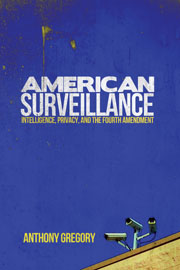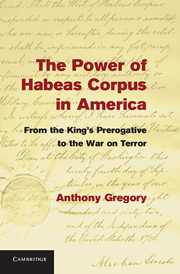Over the last several years, the Bush administration has insisted that its treatment of so–called “enemy combatants” did not need to meet procedural safeguards or withstand judicial review. Such people are terrorists, we have been told, and thus have no right to due process, a trial, or Habeas Corpus.
And who is an “unlawful enemy combatant”? According to the Military Commissions Act of 2006, just passed by Congress, it is a person who “has been determined to be an unlawful enemy combatant by a Combatant Status Review Tribunal or another competent tribunal.”
Essentially, an “enemy combatant” is anyone the president or defense secretary says it is. Sure, there’s a tribunal, but this is a technicality, since the Act authorizes the president and the defense secretary to establish such tribunals. Executive decree has replaced the rule of law.
Such “enemy combatants” have no due process rights whatsoever. They can be detained and tortured, never being confronted by an accuser, never being presented to a judge with any charges made against them.
This means, basically, that the president is a dictator. The powers he now has are no less tyrannical and absolute than those of any third–world ruler.
Some have argued that the provision applies only to noncitizens, but as constitutional law expert William Watkins has warned, the José Padilla case has demonstrated the government does not consider citizenship to be a foolproof protection against “enemy combatant” detentions. Even if the government were to begin applying its new powers mostly to noncitizens, the language of the law does not guarantee that it will stop there. Besides, even noncitizens deserve a right to Habeas Corpus.
Since 1679, the time–honored doctrine on Habeas Corpus has been codified in English law. It was meant to ensure that the government could never detain people without at least presenting at a hearing a reason for the detention. It was so important that it was explicitly enshrined in the Constitution even before the Bill of Rights was considered and ratified. The Constitution allowed for its suspension in cases of rebellion and invasion, as a concession to nationalists and conservatives who wanted the new American government to be as powerful as the British monarchy.
Habeas Corpus was suspended by Abraham Lincoln during the Civil War, during which tens of thousands of antiwar Northerners were imprisoned for voicing their views. Lincoln issued an arrest warrant for the Supreme Court Chief Justice when he ruled that according to Article I of the Constitution, only Congress, not the president, could suspend the Great Writ.
Other than during the Civil War, the doctrine has been one of the few ancient liberties respected—ostensibly, at least. To overturn it renders most other rights protections moot, for if the government can detain whomever it wants without even demonstrating a reason for his detention, there cannot be said to be any substantial formal limits on its power over individuals.
The Military Commissions Act also allows for torture of detainees in the war on terror, and immunizes from prosecution government officials who torture prisoners.
The arguments against this new trend toward absolute government power shouldn’t even have to be made, but they are similar as those leveled against the Soviet Union for its similarly dictatorial powers. Even if the Bush administration were to show restraint in using these powers, they are powers which simply cannot be trusted in the hands of anyone. Who knows what the next president might do?
The government has already abused its powers over detainees, sending innocent people to tyrannical regimes abroad to be tortured during interrogation; rounding up people in Afghanistan and detaining them in tortuous conditions for years before declaring their innocence and releasing them; and detaining an American citizen without charging him with a crime. Within the last couple of months, we have learned of a Canadian citizen, Maher Arar, an innocent man who was unduly labeled a terrorist and deported by the State Department to Syria, where he was tortured for ten months. The Military Commissions Act will only embolden U.S. officials, perhaps making them less inclined to send prisoners abroad who might as well be tortured at home.
The pretense is that this protects us from terrorism—but what will protect us from the government? Even though terrorism is a heinous crime, suspects might very well be innocent. The Bill of Rights was intended to defend the innocent by determining who is actually guilty before inflicting punishment.
It is true that there are still elections, but elections do not a free society make. Elected officials can still act as dictators. Thomas Jefferson warned that “an elective despotism is not the government we fought for.” Frighteningly, it is the government we now have.








